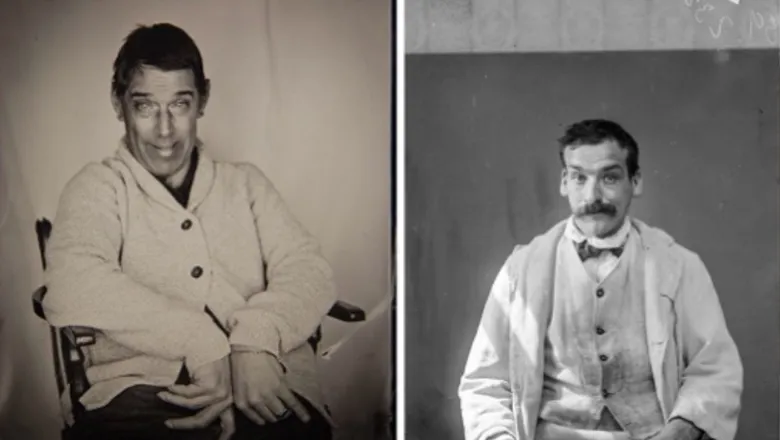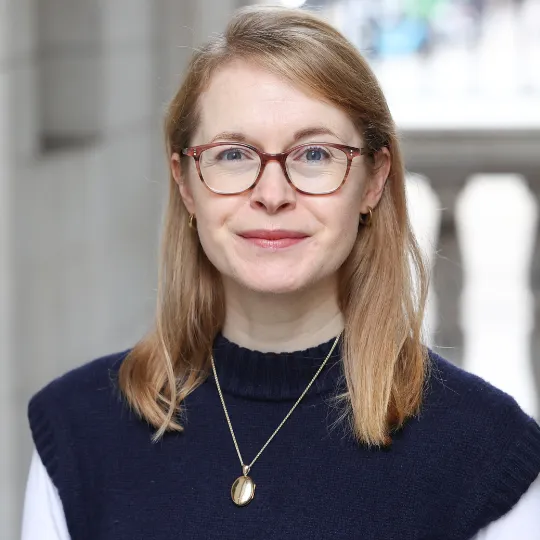Through the IAA at King’s, we've enabled researchers to impact the communities they work with and demonstrate the vital role humanities research plays in addressing today's most pressing social challenges, from human trafficking to mental health, and from policy engagement to activist collaborations.
Dr Elizabeth Scott-Baumann, Pro-Vice Dean (Research Impact & Knowledge Exchange)
29 May 2025
From helping human trafficking survivors to disability representation in art — how King's humanities research is impacting society
Arts & Humanities researchers at King's showcase real-world impact through the Impact Acceleration Account.

The AHRC’s Impact Acceleration Account (IAA) has provided King's Faculty of Arts & Humanities with £750,000 over five years to create innovative pathways for cultural and societal impact. Through this funding, the Faculty has established new mechanisms for rapid response grants, strategic partnerships with underrepresented groups, and comprehensive professional development programmes.
At the midpoint of the IAA, 36 engagement and impact projects have received over £230,000 in grants. Half of the funded projects have now concluded with associated case studies documenting activities and learning published here.
The IAA has also funded eight professional development programmes, providing cohort opportunities in the likes of policy impact, participatory research, impact planning, impact leadership and more. To date, 45 external partners have been involved across IAA activities with events aligned to sub-grant projects having reached over 6,500 people.
Research leads to preventing re-victimisation of trafficking survivors
The collaborative project Survivor Futures, with anti-trafficking organisations the Voice of Domestic Workers (VODW), After Exploitation and Kalayaan, addressed gaps in support for trafficking survivors. Dr Ella Parry-Davies (Department of English) worked directly with Filipina domestic workers as co-researchers to investigate outcomes for survivors returning to the Philippines after trafficking experiences.
The resulting policy report is now being used by over 50 trafficking survivors through VODW to provide robust evidence about the risks of re-trafficking they would face if they return to the Philippines.
Arts initiative transforming disability representation in heritage settings
Dr Alana Harris's (Department of History) 'Us and Them' project created new dialogues between disabled artists and historical representations of disability.
The project addressed representation of disability, the relative lack of visibility of disabled artists in the present, and the risk of assuming that the failings of the past are over.
Working with Freewheelers Theatre and Disability Company, the initiative combined contemporary portraits of disabled artists with historical asylum photographs in an exhibition challenging assumptions about disability then and now.
‘Policy Primer’ builds bridge between research and Government
In collaboration with the Royal College of Arts, and led by King’s Policy Institute, a new project, King's Policy Primer, equipped 28 researchers with tools to engage effectively with policymakers.
Follow-on funding supported five policy impact projects ranging from anti-trafficking advocacy to sustainable festival ecosystems in Senegal.
Impact Fellows programme developing research translation skills
Now into its third cohort, the Impact Fellows scheme has supported 28 arts & humanities researchers to develop and think through the impact of their research. Fellows are involved in a nine-month programme developing impact plans to inform external grant applications, and becoming part of a supportive, interdisciplinary network of others interested in impact.
The IAA will run until March 2027. For further information about the IAA, contact the faculty’s Impact & Knowledge Exchange team at ah-impact@kcl.ac.uk and find out more about Arts & Humanities Impact on the Arts & Humanities website.



